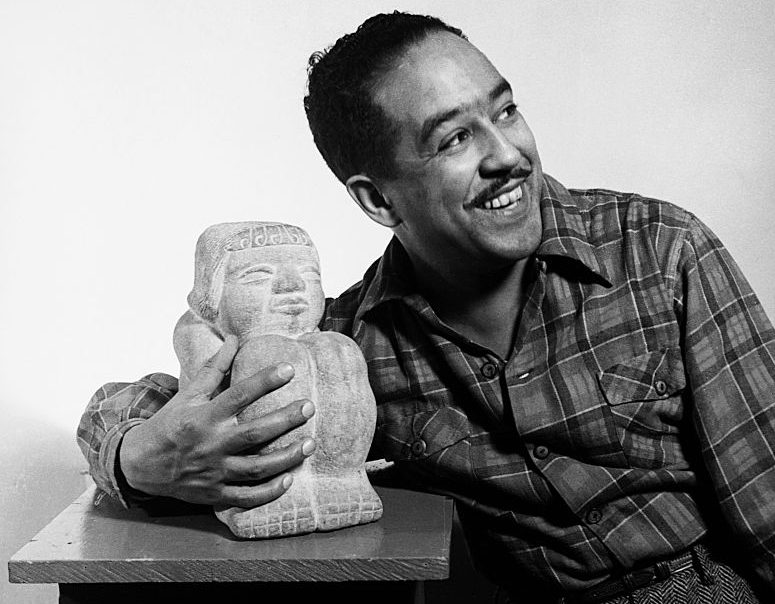As part of Black History Month, NewsNation is celebrating artful and creative pioneers within the Black community who have left an indelible mark on the arts and shattered barriers for other minority artists in the U.S. and in the world. Read about more impactful artists here.
(NewsNation) — Langston Hughes, an iconic figure in American literature, was a trailblazing poet, novelist, playwright, and social activist who emerged as a central figure during the Harlem Renaissance in the 1920s and 1930s.
Hughes wrote “unapologetically about Black life at a time when segregation was law and few Black artists were allowed into the American cultural zeitgeist,” writes TimeOut.
One of Hughes’ most famous works is “The Negro Speaks of Rivers,” written when he was just 18 after graduating high school. This poem marked the beginning of a career dedicated to exploring the African American experience.
Hughes sought to honestly portray through his writing the joys and hardships of working-class Black lives, writes the Poetry Foundation.
“He was one of the early figures to show the dignity and the beauty of ordinary Black life,” said Paul Von Blum, a UCLA senior lecturer emeritus in African American Studies, in a Biography interview.
Born on February 1, 1902, in Joplin, Missouri, Hughes’ early life was marked by challenges and wanderlust.
His parents separated shortly after his birth, and he was raised by his maternal grandmother in Lawrence, Kansas, until he was twelve, when he then moved to Lincoln, Illinois, to live with his mother.
Hughes discovered his passion for literature and writing at an early age, finding solace in libraries and books.
Hughes moved to Harlem, New York, in Nov. 1924, where he became a key figure in the Harlem Renaissance, a cultural, social, and artistic movement that celebrated African American identity and expression.
While studying at Columbia University in New York City, Hughes discovered the Harlem arts scene and immersed himself in the jazz and blues clubs, according to Biography, where he was influenced to weave the music’s rhythms into his work.
“He sought to capture the energy and vitality of the music in his poetry,” said Richard Yarborough, editor of The Library of Black Literature.
He finished his college education at Lincoln University in Pennsylvania.
Unlike other notable Black poets of the period, Hughes refused to differentiate between his personal experience and the common experience of Black America.
His poetry and essays captured the vibrancy and struggles of Black life in America, the university writes, providing a voice to a generation that sought to redefine its cultural identity.
Hughes was one of the first Black authors to support himself through his writing, according to Biography.

His poetry collections, including “The Weary Blues” (1926) and “Montage of a Dream Deferred” (1951), reflected the evolving social and political landscape of the time. Hughes also excelled in prose, with works like “The Ways of White Folks” (1934) and “Not Without Laughter” (1930).
His columns in various newspapers and magazines, particularly in The Chicago Defender, provided a platform for his thoughts on race, social justice and the struggles of everyday people.
Beyond his contributions to literature, Hughes ventured into theater.
His play “Mulatto” (1935) achieved success on Broadway, addressing the complex dynamics of race and identity.
As a socially conscious artist, Hughes used his platform to advocate for civil rights and challenge racial injustice.
According to Book Riot, Martin Luther King‘s “I Have a Dream” speech was partially inspired by Hughes’ poem “Dream Deferred.”
Hughes’ impact extends far beyond his lifetime. His legacy is celebrated through the Langston Hughes Community Library in New York City’s Queens, which holds a wide range of his work, and the Langston Hughes Festival, an annual event dedicated to promoting African American literature and arts.
In 1967, Hughes passed away from cancer in New York City, leaving behind a body of work that remains relevant to the current social and intellectual landscape.






